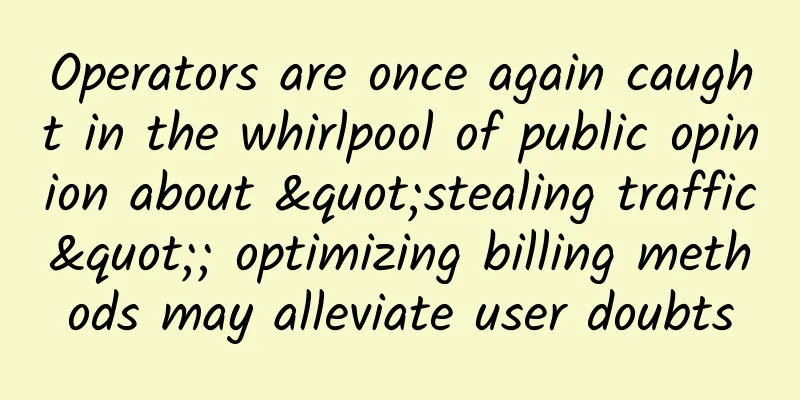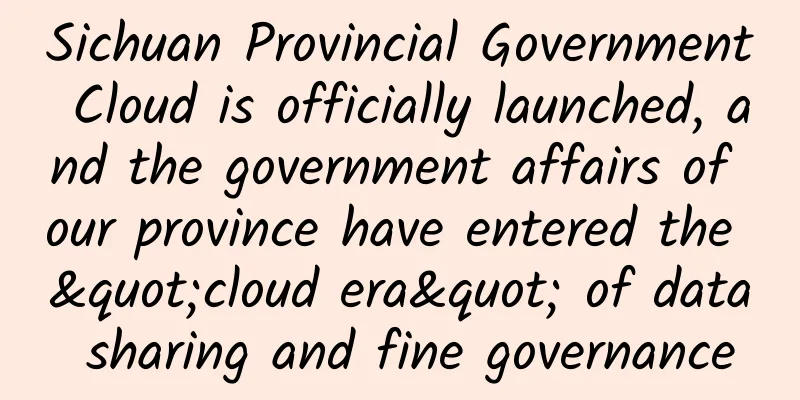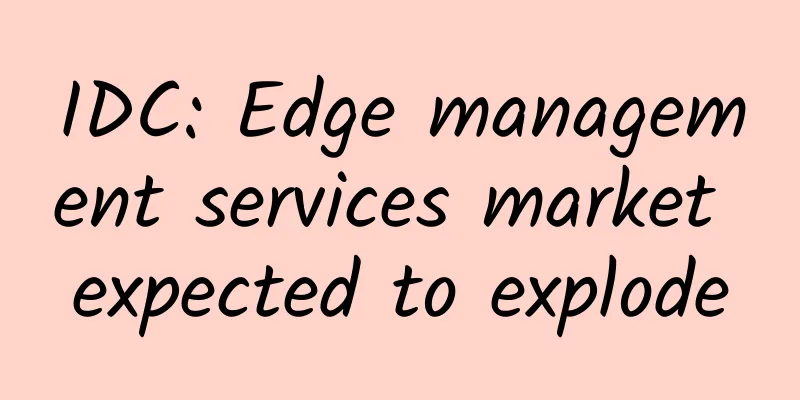Operators are once again caught in the whirlpool of public opinion about "stealing traffic"; optimizing billing methods may alleviate user doubts

|
Operators are once again at the center of controversy due to suspicions of stealing data traffic. 1G can’t last more than 15 days, “abnormal consumption” of mobile data traffic has become a common problem, unlimited data traffic should not be just an advertising slogan, and “faster and faster” mobile data traffic cannot be a muddled account… Public opinion almost unanimously believes that operators are suspected of stealing data traffic. Is this really the case? In fact, suspicions about stealing data traffic have always existed, and many experts have made relevant interpretations, such as malicious apps are the “culprit” and users have improper usage habits. But why are operators always the target of public criticism? Data traffic is getting cheaper, but why is it increasingly unavailable? How can operators alleviate user suspicions?
Operators are again being questioned about stealing traffic. Recently, “stealing traffic” has become a hot word on the Internet again. According to the Economic Information Daily, "Originally 1G was enough for a month, but now it can't even last 15 days." According to feedback from many users, excessive data consumption and imperfect data billing methods of operators do exist, and have become a major obstacle to reducing communication charges. In a post on the Internet, a Hangzhou netizen named Yitian said that his normal data usage is about 2GB per month. He changed to a 3GB package in the first two months, but he didn't expect that his data usage would be used up on the 20th of that month. So he temporarily added two 1GB data packages, and a few days later he received a text message saying that his data usage was used up. Netizen McLaren said that his phone sometimes used up 200 to 300 megabytes of data in one second. After complaining to the operator, the customer service staff returned part of the data usage, but said that the responsibility should be attributed to the user's phone. Abnormal consumption of mobile data traffic has become a common problem, unlimited data traffic should not be just an advertising slogan, and mobile data traffic "running faster and faster" cannot be a muddled account... For a time, operators were once again pushed to the forefront of the storm due to suspicions of stealing data traffic. Public opinion almost unanimously believed that as the leading party in the mobile data service value chain, it is technically "no effort" for operators to steal user data traffic, and they are inevitably stealing data traffic driven by profit. Operators stealing data is a misunderstanding that mobile data is "running faster and faster". Is it really stolen by operators? In this regard, telecom industry analyst Fu Liang believes that it may not be worth the cost for operators to modify user traffic data. Assuming that the operators want to "hack" user traffic, the cost of transforming the system will be greater than the revenue brought in by stealing traffic. In order to verify the accuracy of the operators' traffic calculations, the Zhejiang Provincial Quality Supervision Bureau and the Zhejiang Institute of Metrology conducted a communication traffic detection test. The results showed that when SIM cards of the three major operators were randomly inserted into three multi-standard wireless communication Internet traffic monitors, the same file was downloaded, and the test was repeated 10 times. The deviation values of the traffic detection data were all 0.1% to 0.15%. Comparing the test results, there is almost no difference from the traffic statistics provided by the operators, so the claim that the operators adjusted the calculation method to "steal traffic" is not valid. It can be seen that the idea that operators steal traffic is actually a big misunderstanding. So why are the operators unable to defend themselves in the face of doubts? Is it impossible to provide accurate and detailed information about mobile phone traffic? In this regard, a technical staff of an operator said that the statistics of operator traffic are based on IP and URL, rather than calculating which application has performed Internet operations. If the IP and URL accessed are displayed to users, the amount of data is extremely large, which is of little significance for checking which application or operation caused the abnormal traffic. However, after the operators implemented various preferential measures, many users felt that their mobile data usage was "running faster and faster", and their communication charges were rising instead of falling, which is really puzzling. What is going on? First, malicious apps may be the culprit. Malicious apps that consume user data and phone bills mainly consume users’ data traffic and phone bills by making private calls, sending text messages, and frequently connecting to the Internet. This is a malicious behavior that is difficult for users to detect. Secondly, user habits are also a major factor. Netizen "Zhao Ziming" said that as traffic usage habits gradually form, users frequently open data services, resulting in a significant increase in traffic consumption; on the other hand, many mobile applications will choose to automatically connect to the network and update in order to remind users to update and push various messages in a timely manner, and traffic will also be "consumed" silently. Third, 4G is faster. With the popularization of 4G mobile phones, the Internet speed has made a qualitative leap. Videos and pictures that used to take a long time to open can now be opened in an instant. 1G of data that used to be enough for a month may now only be enough to watch a high-definition movie, and data consumption has naturally increased exponentially. It is imperative to optimize the data traffic billing method. With the increase in network speed and the expansion of network coverage, it is an inevitable trend for users to use more and more data traffic. Solving the problem of mobile data traffic "running faster and faster" and improving users' "sense of gain" from reduced fees have become a must-test question. So, how can operators alleviate users' doubts? On the one hand, they should speak out reasonably and forcefully to clear their names. On the other hand, they should form an optimized traffic billing method, increase the transparency of traffic consumption, and solve the current "pain points" of users' traffic use. In addition, technical means can be used to promptly inform users of abnormal traffic, block and prevent malicious software, and help users monitor traffic. Of course, the key to data consumption lies in how it is used, and users should also take action. Internet users may wish to learn some tips to prevent data leakage, such as canceling the automatic startup of unnecessary applications, turning off the automatic update and push function of software, or selecting "update only under WiFi conditions". |
>>: The Internet of Things has become a popular entry point for domestic operators’ eSIM technology
Recommend
[11.11] Maxthon consoles are 32% off, top up 611 yuan and get 111 yuan for free
Aoyo Host (aoyozhuji/aoyoyun) has launched this y...
vRAN, C-RAN, O-RAN, OpenRAN, the love-hate relationship between Open RAN
[[398639]] This article is reprinted from the WeC...
CN2 restocking: $46.7/year - dual core, 1G memory, 20G hard disk, 1TB monthly traffic, KVM, multiple computer rooms
It's been a long time since I shared informat...
Expert opinion: AI is still very "weak", how can it compete with humans?
[51CTO.com original article] "I am neither a...
South Korean operators to invest $22 billion in 5G networks by 2022
South Korean mobile operators SK Telecom, KT and ...
Some works of the first 51CTO Developer Competition have been revealed, waiting for you to add to it!
/* Live to change the world Here, every work may ...
In 2023, 5G and IoT roaming traffic will surge
According to data from international communicatio...
CrownCloud: Los Angeles 1TB large hard drive VPS annual payment starts at $30, AMD Ryzen7950X series annual payment starts at $35
CrownCloud, which I first shared information abou...
What are the options for 4-port/8-port/16-port/24-port Gigabit POE switches?
POE power supply technology has become the darlin...
You clearly have a 4G phone, but the operator still wants you to sign up for a 5G package?
According to data from the China Academy of Infor...
New in Los Angeles CN2 GIA/Japan SoftBank special price starting from $93 per year
BandwagonHost has launched a SPECIAL 40G KVM PROM...
XenSpec: Chicago/San Jose 1Gbps Unlimited VPS Starting at $2.95/month
XenSpec is a foreign hosting company registered s...
Have you learned how to build the CC2530 development environment?
1. Introduction to IAR ZigBee Wireless Network No...
[CyberMonday] RackNerd: $12/year KVM-1.5GB/20GB/3.5TB/San Jose & Seattle, etc.
RackNerd has released a special Cyber Monday pr...
Research And Markets: By 2022, about 90% of industrial companies will use edge computing
On February 6, a new report released by market re...









